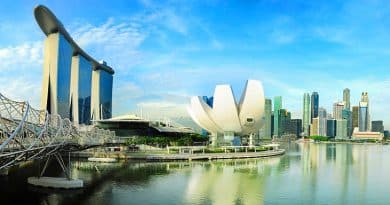8 mistakes tourists make in Boston, from renting a car to not preparing for New England weather
Asia London Palomba/Insider
- I’ve lived in Boston full-time for the last seven years and see tourists make the same mistakes.
- Some ignore the city’s green spaces, overlook the seafood, and expect to stay out late at night.
- Here’s my advice on what not to do when visiting Boston, plus tips on how to get around the city.
I’ve lived in Boston full-time for seven years, and consider it my home away from home.
Asia London Palomba/Insider
I’m from Rome, Italy, but moved to Boston at 18 to attend university. While moving away from home to another country was jarring, I wasn’t wholly unfamiliar with Boston. I spent many summers as a child visiting family members in the city with my mother, who was born and raised in the North End, Boston’s Little Italy.
Aside from a brief year-and-a-half stint in New York City for a master’s degree, I’ve lived in Boston full-time for the last seven years, and feel that I have come to know the city well.
I’ve seen plenty of tourists make the same mistakes when visiting, whether it’s overlooking the seafood or renting a car to get around. Here are the most common mistakes I see tourists make in Boston, and my tips for what to do and see instead.
Renting a car to get around the city isn’t worth the hassle.
Asia London Palomba/Insider
Boston is one of the oldest cities in America, and its narrow streets are not, in my opinion, the most car-friendly. Tack on the fact that it was recently ranked by the US News World Report as the second worst city in the country when it comes to traffic, and Boston is just a nightmare to drive in.
I personally find Boston to be very walkable, and think that using your own two feet to get around is the best way to get to know the city while discovering under-the-radar shops, bars, and restaurants.
But, if the weather isn’t great or you’re too tired to walk, you can also take the city’s subway system, called the T.
Founded in 1897, it’s the country’s oldest subway system and services major spots in the city, as well as neighborhoods in the Greater Boston area. While at times taking the T can feel like you’re still in the 19th century, I find that it generally gets the job done. Tickets can be purchased at kiosks in the station, on certain trains, or online if you want a CharlieTicket, a refillable ticket.
Don’t expect to stay out late.
Asia London Palomba/Insider
Unlike New York City, Boston is not a night owl and definitely has a bedtime.
While the city has plenty of bars, lounges, and clubs to choose from, all establishments close by 2 a.m. and depending on the subway line, the last trip is between 12:20 and 12:50 a.m.
Because of this, it’s common to go out earlier to maximize the night hours. My friends and I will usually aim to be at a bar or club by 10 p.m. at the latest to avoid wasting the night in long entry lines.
And for those who want a late-night snack after a night out, a handful of places stay open through the early hours of the morning. My go-to spot is Bova’s Bakery in the North End because it’s open 24 hours a day, seven days a week. The bakery has been family-run since 1926 and serves cannoli, Italian butter cookies, and cupcakes as well as subs, pizza slices, and rice balls.
Not preparing for New England weather is an easy mistake to make.
Asia London Palomba/Insider
New England is home to some seriously finicky weather. In my experience, the weather can fluctuate dramatically – I’ve experienced the temperature shift from 90 degrees to 60 degrees in the span of 24 hours in the spring and summer.
This can make it tricky to pack for a trip to the city, which is why I recommend looking at the weather forecast ahead of time, ideally as close as possible to when you’re scheduled to leave.
If visiting in the colder months, I suggest packing lots of layers, as Boston is prone to wind chills that can make even an already frigid day feel impossibly colder.
Only staying in the city is a missed opportunity to explore coastal New England towns.
Asia London Palomba/Insider
There are a handful of coastal towns that freckle the shores north and south of Boston, and most can be reached within an hour’s drive from the city.
These quaint towns are brimming with New England charm and are, in my opinion, great places to try local seafood, shop at boutiques, browse art galleries, and breathe in the fresh salty air. My favorites include Rockport, Gloucester, and Marblehead.
Certain towns like Salem and Newburyport can also be accessed via the city’s commuter rail transit system in under 45 minutes for less than $15. The commuter rail runs out of North Station, a terminal station housed in the same building as the TD Garden arena, home to the Celtics and the Bruins, and tickets can be purchased onboard the trains or ahead of time through the MBTA’s phone app.
Not taking advantage of the city’s harbor during the summer months is another mistake I often see tourists make.
Asia London Palomba/Insider
I’ve always found the summers in Boston to be a lot of fun, mainly because there are so many outdoor activities that take place in the city’s harbor. As someone who loves the ocean, I always try to take advantage of visiting the Boston Harbor Islands National and State Park.
Made up of 34 islands and peninsulas that freckle the city’s harbor, they’re easily accessible from the city via daily ferries and are a great way to get out of the city and enjoy time in nature.
I spent many summers when I was younger sunning on the beaches of Spectacle Island, exploring the Civil War-era fortress on Georges Island, and camping on Grape Island.
The New England Aquarium, perched on the edge of the city’s harbor, also has daily whale-watching excursions to Stellwagen Bank, a national marine sanctuary located 25 miles from the coast of Boston, where visitors can see humpback whales, dolphins, seals, and even basking sharks. I’ve been on dozens of excursions, and the feeling of seeing a humpback whale breach or dive beneath the surface never gets old.
Don’t overlook the local seafood options.
Asia London Palomba/Insider
One of my favorite things about living in Boston is how easy it is to find fresh seafood. Because of the city’s proximity to the ocean, I have access to great oysters, clams, lobster, and local cold-water fish including cod, scrod, and haddock.
I’ve had some of my favorite seafood dishes in the city, from baked haddock seasoned with Ritz crackers crumbs to beer-battered cod fish and chips to lemon pepper swordfish sandwiches.
The city is also famous for its clam chowder, a cream-based soup heaped with clams, diced potatoes, and onions, which has been my go-to appetizer in the city ever since I was young.
One of my favorite restaurants in the city for a cup of New England clam chowder is The Boston Sail Loft. Located on the edge of the North End, it’s a quaint, fisherman shack-like establishment with floor-to-ceiling windows that have views of the harbor. Whenever I visit, I always order a cup of their clam chowder as an appetizer — it’s served piping hot, with a side of oyster crackers, in a mug that literally overflows with thick streams of chowder.
If you want to enjoy the city as the locals do, don’t ignore its green spaces.
Asia London Palomba/Insider
Boston is home to as many as 30 green spaces (as you can see on this map,) and I love being able to spend time in nature without having to go far out from the city.
Boston’s most famous park is the Boston Common, a centrally-located green space that was the country’s first public park. Founded in 1634, it was once land for livestock to graze. Today, it’s an expansive, hilly area and one of my favorite places to watch groups of dogs zoom around, attend a rally, or sunbathe on a blanket.
Across the street is the smaller and more tranquil Public Garden, the country’s first botanical garden, where white swans and ducks paddle in a large pond fringed by weeping willow trees. As a child, I frequently rode the Swan Boats, pedal boats that have been making trips around the pond since 1877, and loved sharing my Goldfish crackers with the ducks.
When I was in college, my friends and I often visited the Esplanade, a three-mile-long park that stretches along the banks of the Charles River, to watch the sunset or have a picnic on a warm spring day. Since moving back to Boston, I have been spending more time on the Rose Kennedy Fitzgerald Greenway, a narrow park that snakes between the North End and Chinatown. It has fountains for both dogs and children to play in, benches and tables, a carousel, and a seasonal beer garden where I’ve tried a great blueberry sour.
Not making reservations to eat in popular neighborhoods like the North End is a big no-no.
Asia London Palomba/Insider
The North End is Boston’s oldest immigrant neighborhood and one of the city’s most visited areas. Although only one square mile, the historic Italian enclave is packed with dozens of restaurants set on picturesque narrow streets that recall those in Italy.
These eateries often have large windows that open up in the warmer months for an al fresco vibe, which I think is a fun opportunity to people watch with an Aperol Spritz in hand.
While the neighborhood is especially busy on the weekends, I’ve seen lines form outside of restaurants, even on weekdays and regardless of the season. I recommend making a reservation if you plan on eating out there, and most of the neighborhood’s restaurants can easily be booked online through platforms like OpenTable.
My favorite restaurants in the neighborhood are Trattoria il Panino for their pasta and Quattro and Locale for their Neapolitan-style brick oven pizza.



